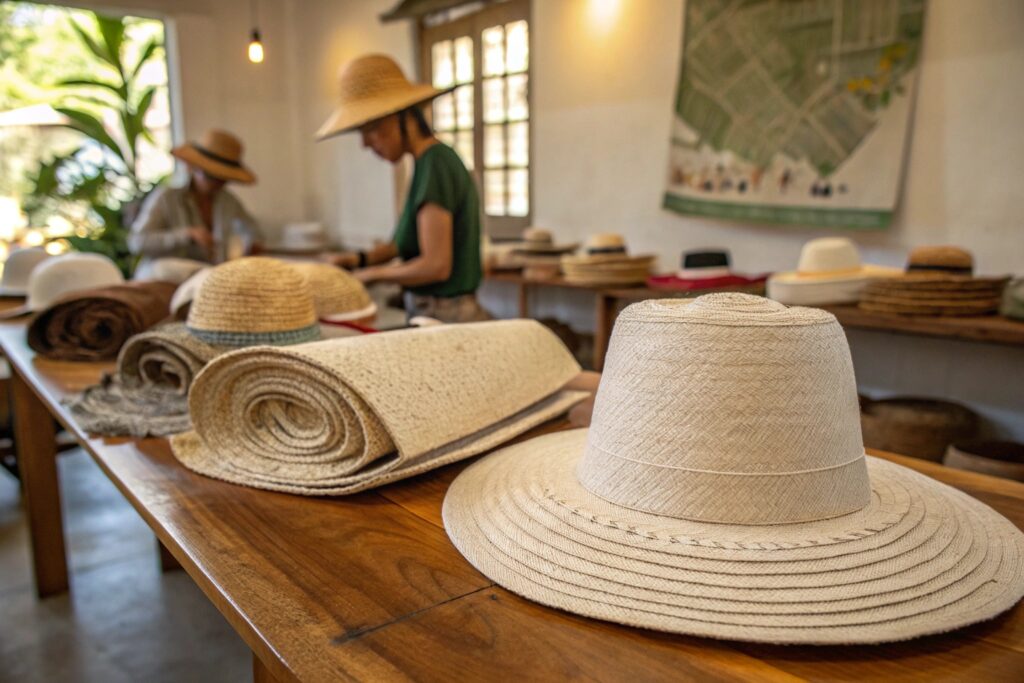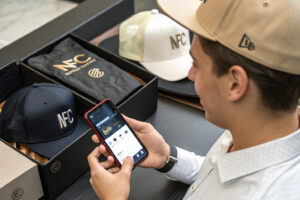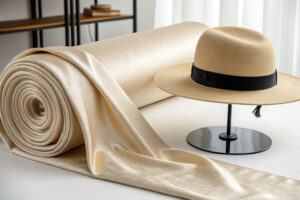As the demand for sustainable fashion rises, hat buyers are looking beyond style—they want materials that align with their environmental values. Whether it’s a boutique retailer in Los Angeles or a mass distributor in Europe, customers are asking the same question: What are the best eco-friendly materials for making hats that last and sell well?
Top eco-friendly hat materials include organic cotton, recycled polyester, bamboo blends, and Tencel™. These fabrics balance sustainability, performance, and style—making them ideal for wholesale buyers prioritizing quality and environmental responsibility.
With 20+ years of experience manufacturing hats in Keqiao—the textile capital of Asia—I’ve seen firsthand which materials truly hold up across development, production, and real-world wear. In this guide, I’ll break down the most sustainable options I’ve used for our global buyers.
Why Choose Organic Cotton for Eco-Friendly Hats?
Organic cotton is a crowd favorite for eco-conscious headwear. But why does it matter to both consumers and importers?
Organic cotton hats reduce water usage, eliminate harmful chemicals, and feel softer on the skin—making them a premium, ethical choice for sustainable brands.
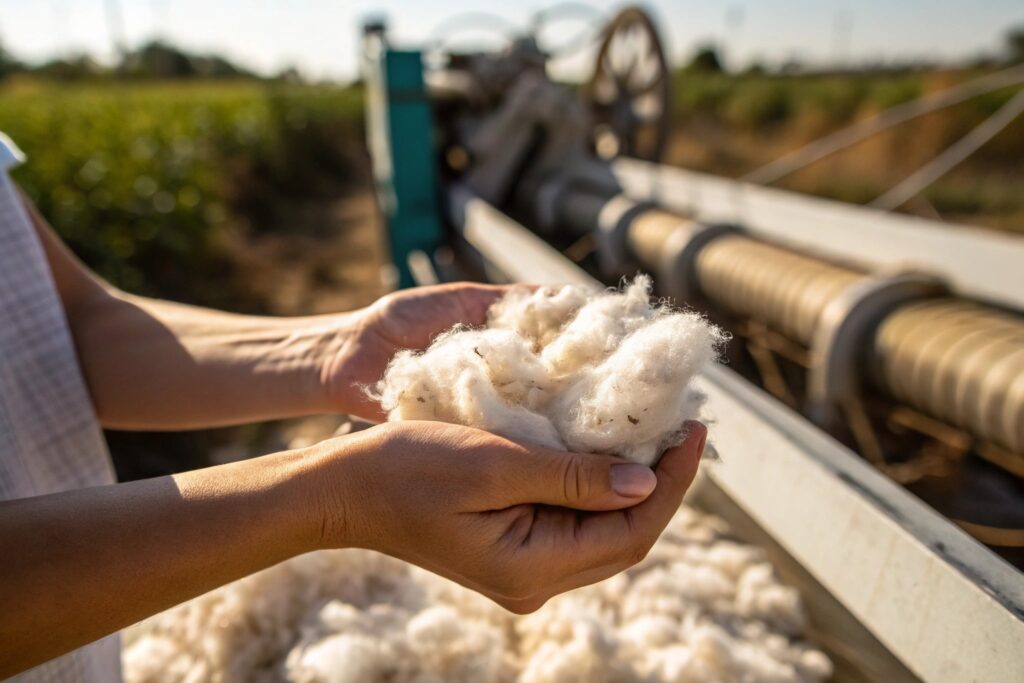
How Is Organic Cotton Grown Differently?
Unlike conventional cotton, organic cotton is grown without synthetic pesticides or fertilizers. This significantly reduces environmental harm and conserves biodiversity. Most certified organic cotton uses crop rotation and biological pest control, improving soil health long-term.
| Feature | Organic Cotton | Conventional Cotton |
|---|---|---|
| Water Consumption | 91% Less | High |
| Chemicals Used | None (Natural Methods) | Pesticides & Fertilizers |
| Soil Health | Improved | Depleted Over Time |
| Skin Sensitivity | Hypoallergenic | Often Irritating |
In our production line, we only use GOTS-certified cotton for our organic range. This assures our clients in the U.S. and Europe that the entire supply chain meets eco and labor standards.
What Types of Hats Work Best with Organic Cotton?
Organic cotton works well for bucket hats, baseball caps, and baby beanies, especially those meant for warm weather. Its breathability and soft hand-feel make it ideal for close-to-skin contact.
I recommend using brushed organic cotton twill for premium baseball caps—it blends structure and softness, a quality that’s appreciated by luxury brands and Etsy sellers alike.
Is Recycled Polyester Truly Sustainable?
Recycled polyester (rPET) is one of the most in-demand sustainable materials right now. But how sustainable is it really?
Recycled polyester transforms plastic waste into durable hat fabrics, reducing landfill impact while meeting performance needs for outdoor and fashion hats.
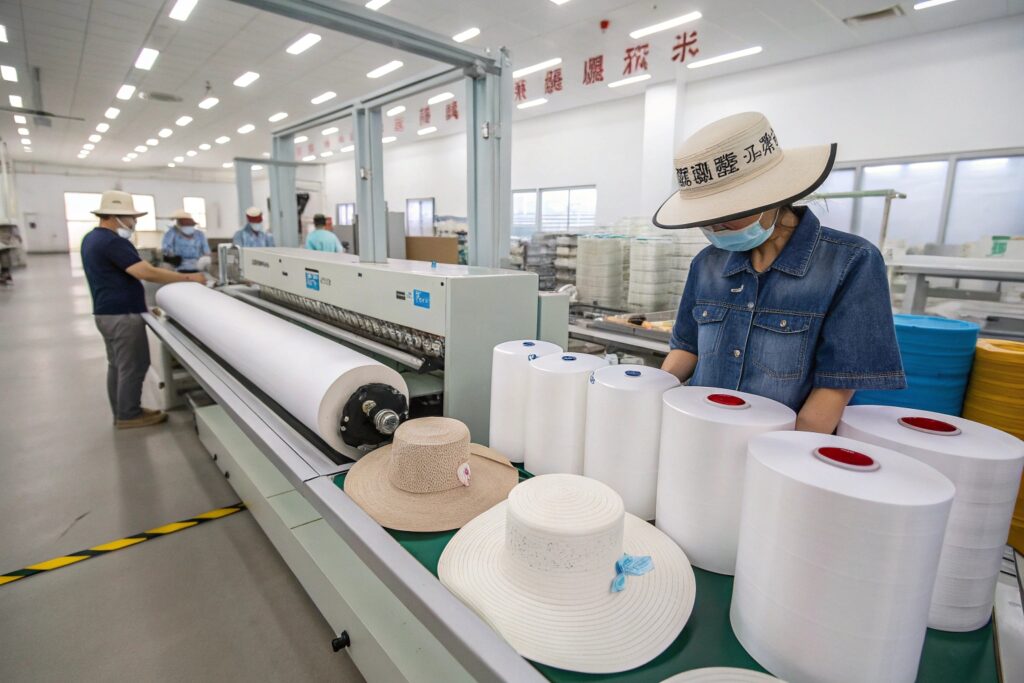
What Is rPET Made From?
Recycled polyester is derived mostly from post-consumer PET bottles. These are cleaned, shredded, melted, and then spun into yarns. The process uses 59% less energy compared to virgin polyester.
In our Keqiao facility, we work with local recycling partners to ensure raw input meets OEKO-TEX and GRS (Global Recycled Standard) certifications.
Where Does rPET Shine in Hat Manufacturing?
Recycled polyester is lightweight, strong, moisture-resistant, and easy to dye. That’s why it’s perfect for:
- Baseball caps for sportswear brands
- Snapbacks for streetwear collections
- Outdoor hats needing UV resistance
We often combine rPET with spandex to add stretch for performance headwear. If your brand needs custom logos or digital prints, this material holds up well during sublimation and heat press.
Why Use Bamboo and BAMSilk™ in Sustainable Headwear?
Bamboo and its high-performance cousin BAMSilk™ offer next-gen softness and sustainability. But are they right for hats?
Bamboo-based fabrics are biodegradable, fast-growing, and naturally antibacterial—ideal for breathable, comfortable, and planet-friendly hats.
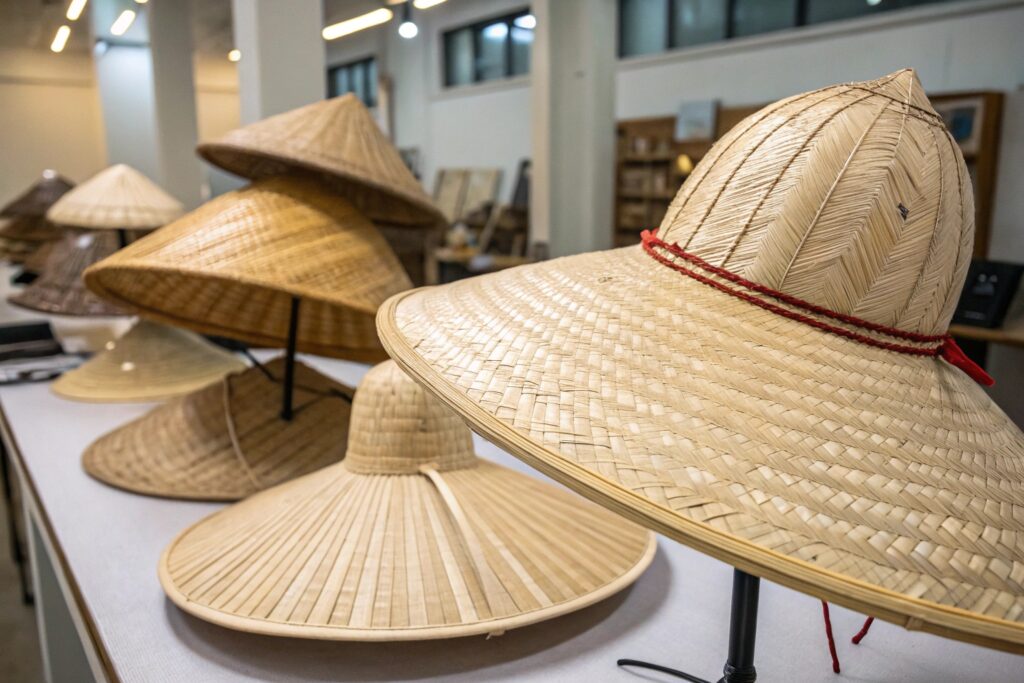
What Makes Bamboo Eco-Friendly?
Bamboo grows without pesticides and uses one-third the water of cotton. It’s one of the fastest-growing plants on Earth and regenerates naturally. When processed properly, bamboo rayon or BAMSilk™ can feel even softer than silk.
In our lab, we’ve tested BAMSilk™ blends for their sweat absorption, antibacterial effect, and softness, especially under hot and humid climates like Florida or Southeast Asia.
Which Hat Styles Benefit from Bamboo Fabrics?
We’ve used bamboo in:
- Sun hats for resort collections
- Berets and bucket hats with a premium hand-feel
- Chef’s hats requiring breathable materials
One of our U.S. clients runs a chefwear e-store and chose BAMSilk™ over cotton for its lightness and odor control. His reorder rate doubled within six months.
How Does Tencel™ Outperform Traditional Fibers?
Tencel™ (also called lyocell) is growing fast in sustainable fashion—but does it work well for hats?
Tencel™ is a smooth, breathable, and low-impact fiber sourced from wood pulp—perfect for soft, durable, and wrinkle-resistant hats.
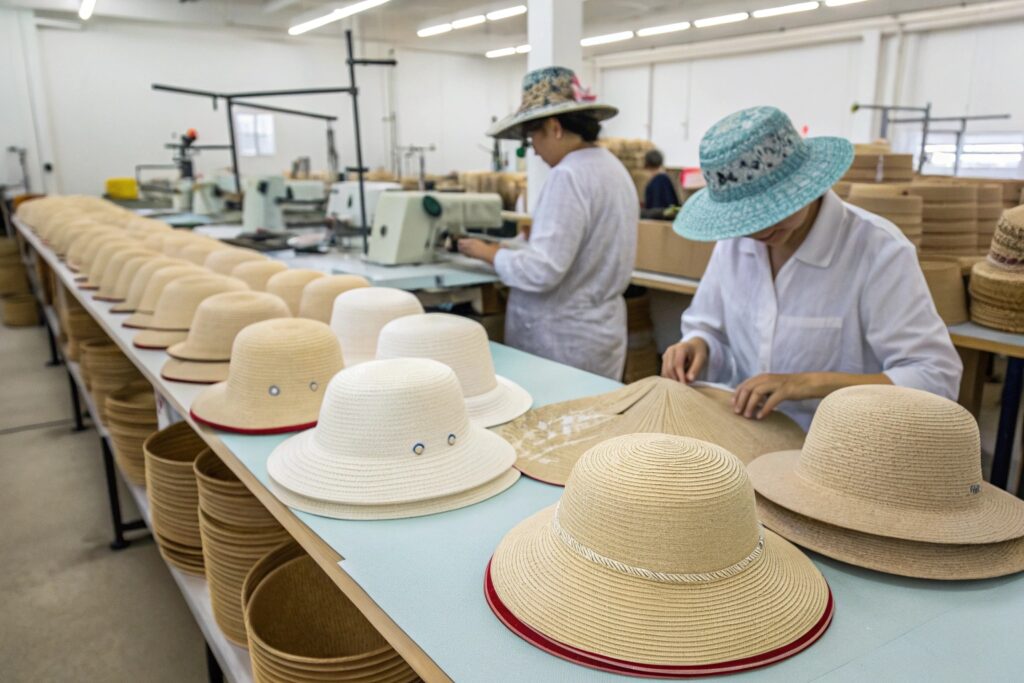
What Is Tencel™ and Why Is It Sustainable?
Tencel™ is made from eucalyptus and beechwood pulp, processed using a closed-loop system where over 99% of the solvent is reused. It’s certified by EU Ecolabel and preferred by high-end brands for its low carbon footprint and skin-friendly texture.
What Types of Hats Are Ideal for Tencel™?
Tencel™ works best in fashion-focused hats. We’ve supplied it to European clients producing:
- Draped bucket hats
- Wide-brimmed cloche hats
- Flowy sun hats with ribbon details
Because it resists wrinkles and holds dye well, it’s also ideal for hats sold via e-commerce platforms. Customers love receiving hats that look like the picture—without ironing.
Conclusion
Eco-friendly hat materials aren’t just a trend—they’re the new standard. As someone who has developed hats for global clients for over two decades, I can confidently say the materials we choose today will shape our industry's future.
Organic cotton appeals to skin-conscious buyers and delivers ethical value. Recycled polyester satisfies active and price-sensitive markets while reducing waste. Bamboo and BAMSilk™ offer innovation and softness, especially for tropical climates. Tencel™ elevates fashion-forward collections with minimal environmental harm.
If you're a buyer looking for sustainable hat suppliers, ask your manufacturer about their fabric certifications, sourcing traceability, and lab testing capacity. At Global-Caps, we’ve invested in every part of this chain to help our partners ship smarter, faster, and greener.
Whether you sell on Amazon, supply a boutique, or manage a supermarket’s headwear line—these four eco-friendly materials can elevate your brand’s image, satisfy global regulations, and win over eco-conscious consumers.
